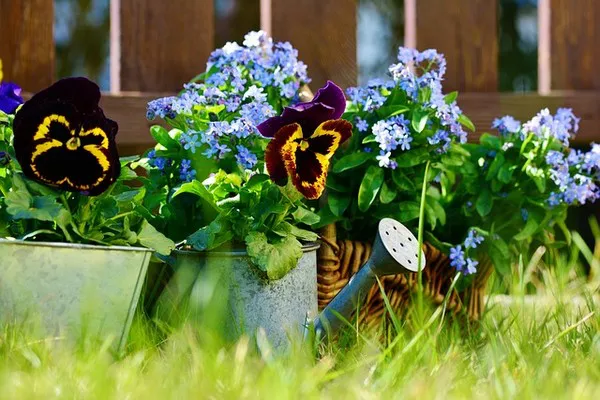Enthusiastic students in Australia are basking in the gentle pink glow as they nurture plants within specially designed grow boxes intended for future space stations. These young scholars are making history by being the first in Australia to participate in the “Growing Beyond Earth” initiative, a NASA and Fairchild Tropical Botanic Garden citizen science program hailing from the United States.
The project in Australia is a collaborative effort involving Royal Botanic Gardens Victoria, the La Trobe Institute for Agriculture and Food, and the Melbourne Archdiocese of Catholic Schools. This educational endeavor seamlessly integrates with the Australian curriculum and offers students a unique introduction to gardening through the lens of science.
Within this pioneering initiative, students are cultivating plants under controlled conditions to evaluate their suitability for NASA missions, particularly in sustaining future astronauts with fresh, homegrown produce.
Given that plants have evolved on Earth, their performance in space is not guaranteed. Thorough testing of their adaptability is essential before embarking on off-world endeavors, such as lunar and Martian exploration.
NASA’s Artemis mission, set to establish a long-term presence on the moon and send astronauts to Mars, underscores the need for sustainable food sources in space. Currently, astronauts aboard the International Space Station rely on pre-packaged diets regularly restocked from Earth. However, to ensure the health and well-being of future spacefarers, space gardens supplying fresh, edible crops are vital.
The Growing Beyond Earth program challenges students to build a “growth habitat” within a box, approximately the size of a large microwave, equipped with LED lights and sensors. They plant seeds of a leafy green called misome, a species known for its reliable and swift growth, both in terrestrial and extraterrestrial conditions.
Students gain valuable experience by conducting their own experiments, from planting seeds in pots to utilizing growth media mirroring NASA’s Vegetable Production System (Veggie). They meticulously monitor growth and water consumption, taking notes on plant size, color, fitness, and the feasibility of consumption.
In an extension of their skills, students can embark on a second experiment, testing various plant types. The program has already trialed nearly 200 plants, with promising candidates like pak choi, cress, and kale emerging as suitable choices.
Moreover, the Growing Beyond Earth initiative not only supports the curriculum but also fosters a deep connection with nature. Engaging in real-world projects enhances learning outcomes, as students retain information more effectively, achieve higher grades, and develop critical thinking and problem-solving skills.
Research demonstrates the profound impact of nature on well-being, an effect magnified during periods of isolation, as seen during the COVID-19 lockdowns. Indoor plants were found to reduce mental stress, while gardening allowed individuals to reconnect with nature, alleviate stress, and address food supply concerns.
The influence of nature extends to student learning, as academic achievement and personal development are positively affected by a connection with the environment. Students exposed to nature, such as those with a view of greenery, experience reduced stress levels and enhanced performance on concentration tests compared to those in windowless environments.
Improved learning outcomes are also linked to positive moods, as students exhibit greater interest and self-motivation during nature-based activities. These findings hold promise for disengaged students who may thrive when connected to the natural world.
Time spent in nature further shapes individuals’ perceptions of the environment, surpassing mere knowledge of conservation. An emotional bond with nature ignites an interest in sustainability and the preservation of natural resources.
As the Growing Beyond Earth program expands to more countries, its impact on student attitudes towards gardening, conservation, and food will be under ongoing assessment. Surveys conducted thus far reveal that students engaged in the program exhibit greater knowledge and confidence in science, technology, engineering, and mathematics (STEM) topics and related careers.
These students, armed with a newfound passion for space gardening, may play pivotal roles in the development of future crop production systems on Mars, the creation of space-faring plants for sustenance and medicinal purposes, and the use of nature to enhance the well-being of individuals experiencing isolation. The Growing Beyond Earth initiative is opening up an exciting new frontier in both education and space exploration.


